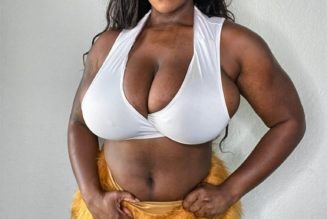Some Los Angeles County retailers can reopen with curbside pickup only — including stores that sell music, toys, books, clothing and sporting goods.
California Gov. Gavin Newsom on Thursday issued the broadest loosening of his stay-at-home order so far, allowing some retailers to reopen but not have customers in stores.
The guidelines were made “with an eye on turning the page and moving into a new phase in terms of our economic recovery,” Newsom said.
The announcement was the result of improvement in battling the coronavirus. It moves California into the second phase of a methodical four-step process to full reopening. It covers only a sliver of retail businesses as well as manufacturers’ warehouses considered low risk for the virus.
Stores that will be allowed to open with curbside service if they meet other safety requirements include bookstores, clothing stores, florists and sporting goods stores. Higher-risk businesses like hair salons and gyms, offices and dining in restaurants will come later.
Beyond curbside pickup, modifications for retail stores could include contact-free transactions, supplying more hand sanitizer in stores, and having staff in gloves and masks deliver goods directly to consumers’ cars, said Mark Ghaly, secretary of the California Health and Human Services Agency. Manufacturing plants, meanwhile, could close traditional break rooms and spread workers farther apart, he said.
“It does not mean a return to normal,” Ghaly stressed.
In total, Newsom said he had 33 modifications developed by his new Task Force on Business and Jobs Recovery. It wasn’t clear if the list is full of suggestions or requirements for businesses that want to open.
The plan may allow some local governments to move faster than the state if they can meet a strict set of requirements, such as demonstrating a very low caseload and expanded testing. Among the requirements: No coronavirus-related deaths in 14 days, and no more than one positive case per 10,000 people in that same time frame. Counties must have 15 contact tracers per 100,000 residents and the 1.5 tests per 1,000 residents.
Newsom said he’ll give more detailed guidelines next week, and that he thinks some counties could hit the requirements quickly. But some counties have already moved ahead with broader reopenings.
Since the stay-at-home order was issued on March 19, more than 4 million people have been put out of work in the nation’s most populous state. Thursday, several dozen protesters at the state Capitol carried signs that read: “My rights don’t end where your fears begin.” Last week, hundreds of people swarmed the Capitol in a much larger protest that included more than 30 arrests.
Newsom has said repeatedly he won’t bow to political or economic pressure to reopen the state and will instead rely on a four-step plan driven by science and data. The next phase, which could reopen salons, gyms, movie theaters and in-person church services, could be months away. Phase four would end all restrictions and allow for large gatherings at concerts and sporting events, something Newsom said likely won’t be possible until a vaccine is available or most people are immune to the virus.
The Newsom administration is tracking six indicators to determine when to ease restrictions. They include the state’s ability to test people for COVID-19 and trace who might have been exposed to it, and the capacity of hospitals to handle a potential surge of new cases.
So far, Newsom has said the state is on track to meet its goals.
But some counties don’t want to wait. Tiny Modoc County permitted its only movie theater to open. Yuba and Sutter counties allowed in-store shopping and the restarting of gyms and fitness studios, salons, spas, tattoo parlors, libraries and playgrounds.
Yuba Sutter Mall General Manager Natasha Shelton said about 18 of the roughly 50 stores were open Wednesday and estimated about 200 people were inside at noon. The mall had reduced hours to allow additional cleaning overnight.
Newsom has cracked down on rogue counties before, ordering the temporary closure of all beaches in Orange County after a few local governments refused to close them or impose public health restrictions. He lifted some of those orders after negotiating with local governments.
This week, state regulators contacted a handful of businesses in Yuba and Sutter counties, warning them to comply with the statewide order, the San Francisco Chronicle and the Sacramento Bee reported.
On Wednesday, Yuba-Sutter Health Officer Dr. Phuong Luu issued a public warning to businesses to make sure their employees and customers were practicing social distancing and wearing face coverings, as required by the local orders.
Other cities and counties have signaled their intention to reopen in the coming days. Fresno Mayor Lee Brand said some businesses in his city could open on Monday, including electronics and camera stores, furniture stores and auctions, the Fresno Bee reported.
In Los Angeles, county officials outlined a plan allowing some reopenings beginning Friday, provided safety precautions are in place.
Some Los Angeles County retailers can reopen with curbside pickup only — including florists and stores that sell toys, books, clothing, sporting goods and music. The county, with 10 million residents, has accounted for more than half California’s more than 2,500 virus deaths.
For most people, the new coronavirus causes mild or moderate symptoms, such as fever and cough that clear up in two to three weeks. For some, especially older adults and people with existing health problems, it can cause more severe illness, including pneumonia, and death.





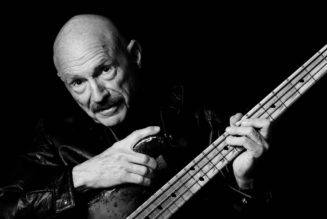
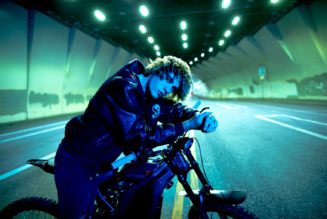
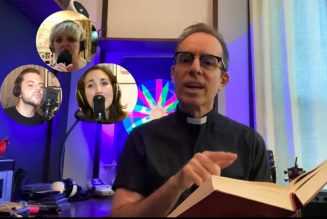
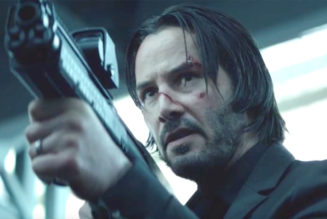
![Miss Jones Alludes To Having A Threesome With 2Pac And Monie Love? [Video]](https://www.wazupnaija.com/wp-content/uploads/2021/06/miss-jones-alludes-to-having-a-threesome-with-2pac-and-monie-love-video-327x219.png)
